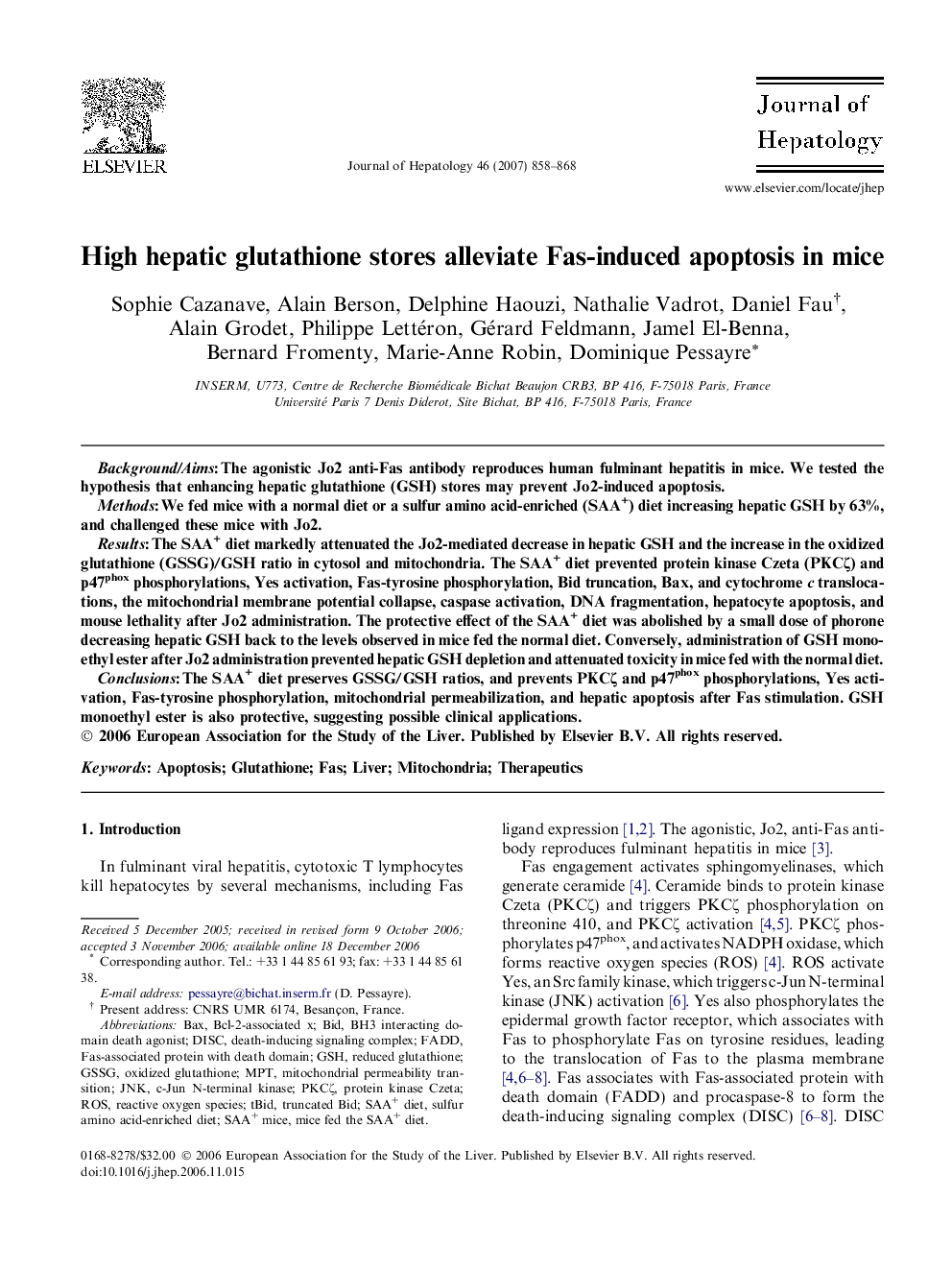| Article ID | Journal | Published Year | Pages | File Type |
|---|---|---|---|---|
| 3315522 | Journal of Hepatology | 2007 | 11 Pages |
Background/AimsThe agonistic Jo2 anti-Fas antibody reproduces human fulminant hepatitis in mice. We tested the hypothesis that enhancing hepatic glutathione (GSH) stores may prevent Jo2-induced apoptosis.MethodsWe fed mice with a normal diet or a sulfur amino acid-enriched (SAA+) diet increasing hepatic GSH by 63%, and challenged these mice with Jo2.ResultsThe SAA+ diet markedly attenuated the Jo2-mediated decrease in hepatic GSH and the increase in the oxidized glutathione (GSSG)/GSH ratio in cytosol and mitochondria. The SAA+ diet prevented protein kinase Czeta (PKCζ) and p47phox phosphorylations, Yes activation, Fas-tyrosine phosphorylation, Bid truncation, Bax, and cytochrome c translocations, the mitochondrial membrane potential collapse, caspase activation, DNA fragmentation, hepatocyte apoptosis, and mouse lethality after Jo2 administration. The protective effect of the SAA+ diet was abolished by a small dose of phorone decreasing hepatic GSH back to the levels observed in mice fed the normal diet. Conversely, administration of GSH monoethyl ester after Jo2 administration prevented hepatic GSH depletion and attenuated toxicity in mice fed with the normal diet.ConclusionsThe SAA+ diet preserves GSSG/GSH ratios, and prevents PKCζ and p47phox phosphorylations, Yes activation, Fas-tyrosine phosphorylation, mitochondrial permeabilization, and hepatic apoptosis after Fas stimulation. GSH monoethyl ester is also protective, suggesting possible clinical applications.
